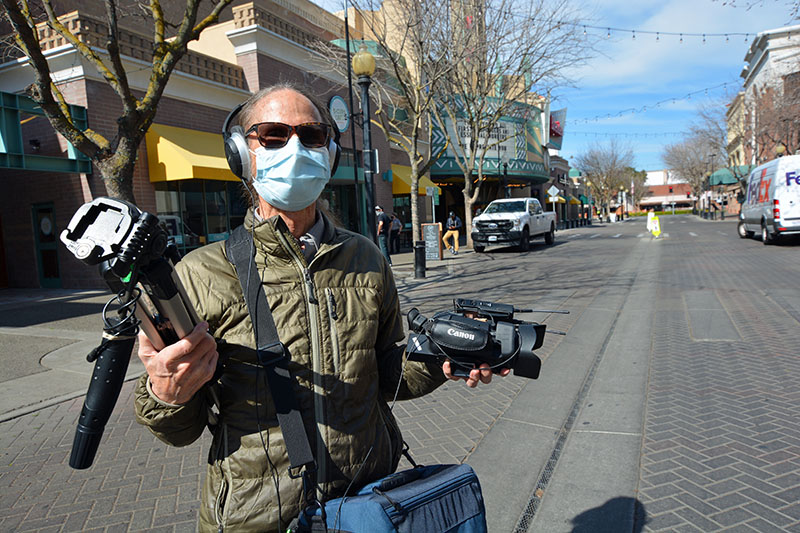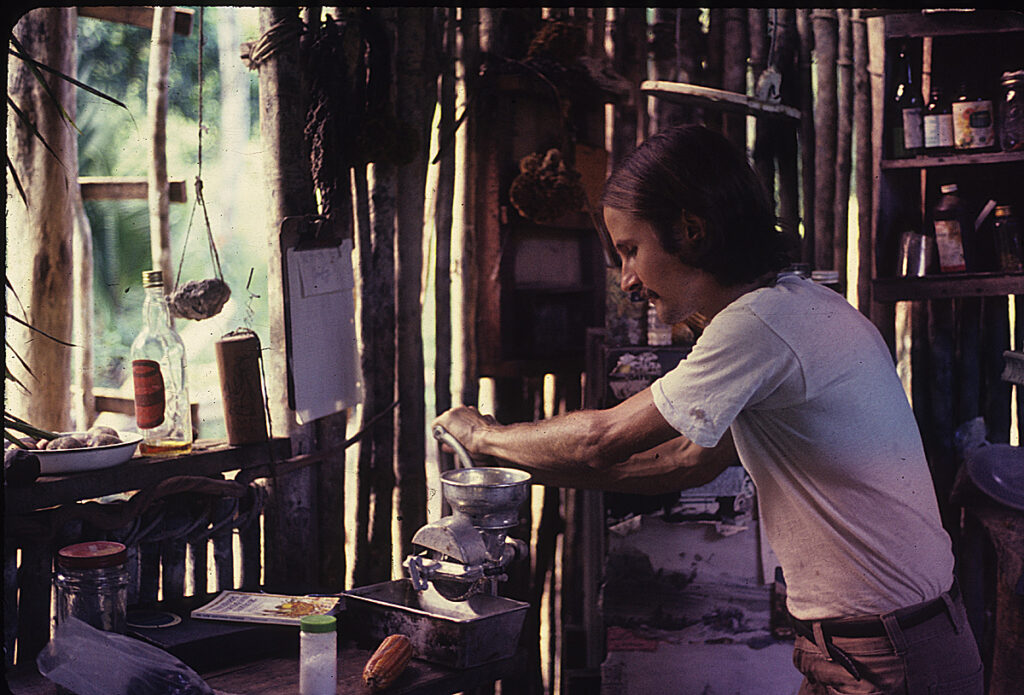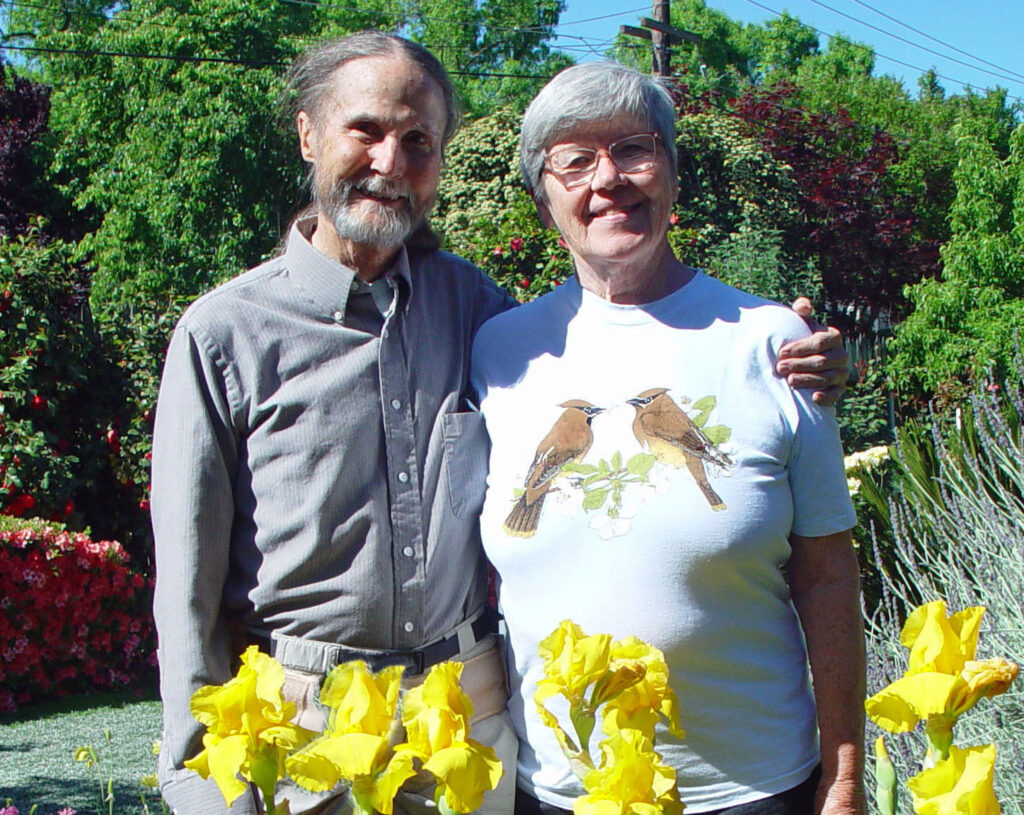One of the Valley’s great community leaders, Dr. Richard Anderson took an often-adventurous path in life prior to arriving as a Professor of Microbiology at Modesto Junior College in 1989. Along the way, he experienced things that helped to shape the dedicated and caring activist he is today.
Not surprisingly, he has always worked fiercely as an advocate for a wide array of worthy causes – from fighting for social justice in the Santa Barbara of the late sixties and early seventies to teaming with others on the Modesto Homeless Documentary Project. He continues to do so well into his retirement years.
Early on, Dr. Anderson learned the value of looking for lessons in every situation.
“I was born in Des Moines Iowa, in 1944, but we moved to California when I was four, so I am basically a Californian,” Dr. Anderson recently recounted.
“We went to a literalist Christian church. Attending that church has been a problem for me as well as a blessing. But I did learn good lessons from that experience – that we should love others as we love ourselves and that we have a responsibility to make this world a good place.”

From an early age, Richard was fascinated by science, and enrolled at the University of Southern California with the intent of becoming a medical missionary. Upon graduation, though, he was still searching for what he wanted to do with his life.
Staying on at USC for graduate studies, he said,
“I analyzed the feeding habits of fish, Lanternfish, in particular. Every day these fish migrate 300 meters down into the dark because they have to escape predators, and at nighttime they all come up again and start feeding on the plankton that’s been growing during the day. By studying these fish I was able to earn a Master’s degree.”
His intensive postgraduate studies next took him to the campus of the University of California at Santa Barbara, where he pursued his Ph.D. by using an electron microscope to study how plants move sugars from leaf to root.
“But something else happened at UCSB in those years,” he pointed out. “The Revolutions of the Sixties were happening – the Environmental Revolution, the Black Revolution, the Brown Revolution, the Women’s Revolution, and the gay people were beginning to come out. It was an exciting time.”
It was during this time that Richard became more of a progressive, someone willing to stand up for social justice.
‘I completed my doctoral exams early in 1970,” Dr. Anderson continued. “But I had no job. So I bought a restaurant for about $1,500. I learned another lesson — which is that running a small restaurant is really, really hard work, and takes up all your time seven days a week all day.”
In a sense, Richard had two separate restaurants.
“I had a gay coffee house which was open later at night. We served pie, ice cream, tea, and coffee. But we also had a restaurant open in the evenings, to serve food – brown rice with vegetables, and salad – you could get that for 99 cents. The specials were $1.10. The food was very simple, such as beef Stroganoff made with ground beef. I did that for a year. It was common for the food take to be all of $30 to $35 a night!”
The next turn in the career path took Dr. Anderson to La Mesa, California, where he taught full-time for a year at Grossmont College. Eventually, though, due to budget cuts and policy changes, he worked on a part-time basis for a few years before losing his position to a young woman.
“The school did the right thing,” he generously recalled. “This was the era of the Women’s Revolution. They needed to have youth, and they needed to have a woman!”
Undaunted by the loss of a job, and “excited by an opportunity to go to Belize with seven people to live there, and grow food,” he set out on his next great adventure – living off the land, far away from the United States and its consumer society.

“The atmosphere in Belize was completely relaxed,” he related. He loved the country and its people but found “I learned that not only was I not strong enough to make it on my own, but I really learned an appreciation for water. If you don’t have water, you don’t have life. I owned a Mayan-dug well maybe a thousand feet away down a gentle slope on the property where I lived – so I’d go down there with a yoke and two buckets and trudge back up that hill with the water. So this notion of turning on a tap for water and wasting it when we forget to turn it off – no, that experience made me into a water conservation fanatic. I learned many others lessons, too, including that I could not live in a non-technological society. I came back to the States to start up a new life.”
Landing back in California in 1980, Dr. Anderson studied for a time to become a nurse, pursuing an LVN degree at Columbia College, but eventually started teaching at the school since, with his Ph.D., “I could teach any biology class they wanted to assign to me.”
In the late 1980s, he returned to school to learn microbiology at UC Davis.
“That really enhanced my life, because now I could teach a broad range of subjects – microbiology, anatomy, physiology, and general biology. In 1989, I was hired at MJC, which was even better because I specialized in microbiology. I was able to make a film about the germ theory of disease on a Sabbatical leave,” he mused. “In addition to getting the job, a couple of years later I married one of the biologists on the committee who had hired me – Lynn Hansen,” he added chuckling. “That really changed everything for me!”

In the ensuing thirty years, Richard and his wife Lynn have traveled extensively, including to such far-flung destinations as the Galapagos Islands, the Antarctic, Tanzania, and Midway Island.
Following his retirement from MJC in 2009, Dr. Anderson redoubled his efforts in the community where he had taught and made a home with Ms. Hansen. This led to The Modesto Homeless Documentary Project.
“I spent most of my life in the Ivory Tower of academia so I felt the need to try to learn what’s going on outside,” he explained.
“There is such a homeless problem here. I hooked up with Frank Ploof, Leng Power, John Lucas, and Eric Caine, and we made a documentary on the homeless in Modesto up until 2018.” It’s at: https://youtu.be/PHauVTGXQsE
“It’s sort of a historical document because in the fall of 2018, the 9th Circuit Court of Appeals passed a ruling on the Boise case that says you cannot cite people for camping in public unless there is enough sheltering available in that community. There are no metropolitan communities that have enough sheltering, and so that ruling caused the big changes that we’ve seen in Modesto. We are now making a new movie that updates our area’s responses to the issue over the last few years. What our area has done in response is really quite complex. I know we’re not doing enough. More people are being added to the ranks of the homeless every year by all these powerful economic forces. I also want to complete my other video, which is called Here and Now: Local Climate Change Impacts.”
Dr. Anderson contributes impressively in other ways as well. With his video equipment in hand, he’s documented a plethora of local events, including poetry readings, candidate forums, and political rallies and marches. He’s interviewed numerous religious leaders and scientists and documented their thoughts on video.
He’s been a member of the League of Women Voters for many years, and has long served as a volunteer for the Modesto Peace & Life Center. Recently, he and Ms. Hansen have been helping a family from Syria get established here in Modesto.
“I’ve learned a lot about Modesto and the Valley since I’ve been here, and met many wonderful people,” he reflected when asked about the Valley. “Yes, we have our problems. But this is a very kind group of people that I know and with whom I work. It’s a welcoming place, in a way. Of course, a lot of it is having met Lynn, and married her, and becoming integrated into the community. That has really opened my eyes to all kinds of wonderful people. I’m just trying to help build that community that we all want to live in.”

Richard’s a pretty impressive human.
Thank you for shedding light on his life!
In addition to his accomplishments, many pursuits of education, and activism, Richard is a warm and kind person and good friend.
Thanks for shining a spotlight on one of our true local heroes & his adventurous life. You left out his fun sense of humor! He and Lynn would be a real asset to any community & I’m glad they are a part of ours. They have been members of MICL for many years and we so look forward to spending time with them again in person.
Richard is well known figure for people causes and the Earth. Nice to know the history behind the man. Thank you Richard and mrs and Valley Citizen.
Richard’s kindness, enthusiasm, and sense of humor make him a welcome member of any group he chooses to join. There should be more Richards in our troubled world.
A wonderful tribute to a true community hero, Richard Anderson.
Richard’s courage, kindness, and ability to share his intelligence benefits his community like the sun benefits the earth. He’s a bright star even in darkest times.
Richard Anderson is one of my local heroes. He and Lynn are warm, wonderful, accomplished people who reach out to our community because they value the best in the human spirit and they very generously share–including the bounty of their garden. They are gentle, nurturing activists.
My uncle Rick Anderson is one of the smartest people I’ve ever known, and any time I’ve ever spent with him and my Aunt Lynn has been amazing. They are both two of the warmest, friendly and inviting people. If you ever have the pleasure to speak with them you will see how easy it is to talk to them. Uncle Rick has educated my brother and I with facts about geology while camping in the Sierra Nevada’s to sharing stories about his times in other countries volunteering in surgical clinics.
Thank you for writing this article, I learned things I didn’t even know about him!
I had Richard Anderson as my anàtomy and physiology instructor at M.J.C.
I worked with Richard in the late 70s when he was a nurse. He was one of the most wonderful people I knew and I was certain he was going to do big things in his life. I remember him talking about Belize and oddly enough I ended up on an island off of Belize and lived in Costa Rica for a year, so I came to know the life he spoke of. I will always hold special memories of the time I knew Richard.